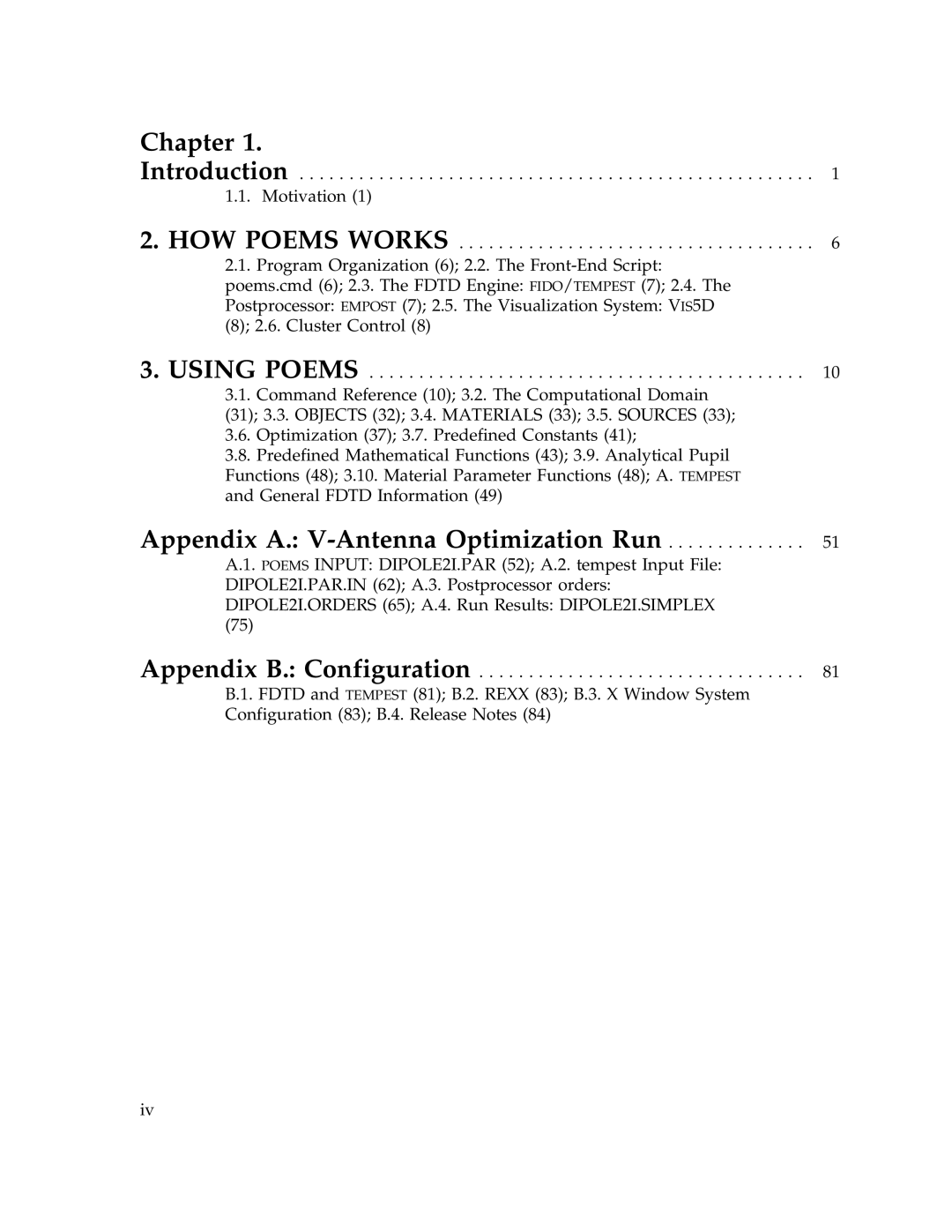Chapter 1. |
|
Introduction | 1 |
1.1. Motivation (1) |
|
2. HOW POEMS WORKS | 6 |
2.1. Program Organization (6); 2.2. The |
|
poems.cmd (6); 2.3. The FDTD Engine: FIDO/TEMPEST (7); 2.4. The |
|
Postprocessor: EMPOST (7); 2.5. The Visualization System: VIS5D |
|
(8); 2.6. Cluster Control (8) |
|
3. USING POEMS | 10 |
3.1. Command Reference (10); 3.2. The Computational Domain |
|
(31); 3.3. OBJECTS (32); 3.4. MATERIALS (33); 3.5. SOURCES (33); |
|
3.6. Optimization (37); 3.7. Predefined Constants (41); |
|
3.8. Predefined Mathematical Functions (43); 3.9. Analytical Pupil |
|
Functions (48); 3.10. Material Parameter Functions (48); A. TEMPEST |
|
and General FDTD Information (49) |
|
Appendix A.: | 51 |
A.1. POEMS INPUT: DIPOLE2I.PAR (52); A.2. tempest Input File: |
|
DIPOLE2I.PAR.IN (62); A.3. Postprocessor orders: |
|
DIPOLE2I.ORDERS (65); A.4. Run Results: DIPOLE2I.SIMPLEX |
|
(75) |
|
Appendix B.: Configuration | 81 |
B.1. FDTD and TEMPEST (81); B.2. REXX (83); B.3. X Window System |
|
Configuration (83); B.4. Release Notes (84) |
|
iv
